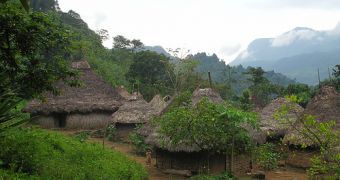Not long ago, we reported on how plans to build a major dam in the Brazilian Amazon have left indigenous communities with no other choice but to resort to open protests and seek legal help in order to safeguard the ecosystems they rely on so as to make a living.
Recent news informs us that, in the aftermath of several anti-dam campaigns, a high federal court in Brazil decided that work on said dam projects needs be halted as soon as possible, as a direct consequence of the fact that those in charge of construction operations failed to take into consideration the claims voiced by locals and began work without being given explicit permission by indigenous communities.
As we previously explained, what locals fear is that having 80% of the Xingu's River flow re-directed in order to accommodate for the new energy generating facility will eventually translate into their no longer being able to fish in this region because the natural ecosystems in the Brazilian Amazon will be severely disturbed.
Moreover, the fact that several portions of lands will find themselves flooded means that quite a large number of people will be forced to move out of their homes and seek refuge someplace else.
Interestingly enough, this is not the first time when authorities conclude that work on the Belo Monte project must be put an end to until an agreement with the local population is reached.
However, past attempts to regulate dam construction operations in this part of the world eventually found themselves overturned, as the companies in charge of seeing to the carrying out of this hydroelectric project managed to by-pass legal halts.
Still, as Mongabay informs us, it is quite likely that this most recent ruling of the Brazilian high federal court will actually make a difference on the life of indigenous communities.
“The decision on Monday was delivered by the Tribunal Federal Regional that is a higher court than the ones that halted the project before. In addition, this decision is based on constitutional and international law, which didn’t happened in the past,” explains Astrid Puentes from the Interamerican Association of Environmental Defense.
For the time being, both local and environmentalists are waiting for the building companies to file an appeal against this decision, which obviously contravenes their interests in the region.

 14 DAY TRIAL //
14 DAY TRIAL //